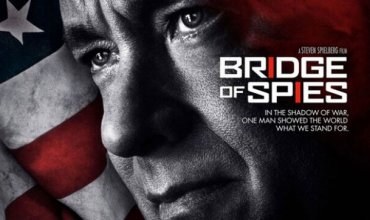BOMBSHELL is a re-telling of the events that ended the career of the late Roger Ailes, the Chairman and CEO of Fox News and further redefined the public’s understanding of sexual harassment in the workplace. Ailes was fired in 2016, when it was revealed there were more than 20 sexual harassment cases against him. The most high-profile of these was the lawsuit filed by former Fox Anchor, Gretchen Carlson (Nicole Kidman). This timing of the suit and the person who filed it, encouraged other women at the news channel to take action.
The movie attempts to encapsulate this journey by showing us how Carlson’s relationship with Ailes deteriorated as she became more interested in stories that went outside the usual Fox remit (like doing an entire show without makeup as part of a discussion on how American culture had become sexualised). This kind of story went against Ailes’ basic concept of selling female reporters and news anchors through their presentation and looks. As Carlson’s interests drifted from Fox’s conservative norm, her well-paid job became less viable. Ailes had almost absolute power at the company. Only the ultimate owner, News Corp’s Rupert Murdoch and his sons James and Lachlan, had more power.
Ailes was extremely knowledgeable about the specific brand of news and opinion that he had successfully packaged and sold to conservative, Republican America. From his years as a consultant to former U.S. Presidents, Richard Nixon, Ronald Reagan, George H.W. Bush and George W. Bush, Ailes knew Republican politics and what candidates and ideas would sell to the American public. By connecting this knowledge to the fledgling concept of a cable news network and elevating opinion (i.e. propaganda) to a level never before seen in the US Media, Ailes transformed the face of television and the culture. He made Fox a ratings champ and a money spinner for Murdoch. All of which made him a force to be reckoned with inside the News Corp building in New York City and in the wider world of American conservative politics.
He liked to mentor young women in his organisation. Sometimes this took the form of discussions about the news business. Other times, mentoring sessions turned into Ailes pressuring these female employees for physical contact. A common move of his was to offer professional advancement to a woman in exchange for sex. Not only was his behaviour inappropriate and criminal, but it also linked career success to whether those women agreed to have sex or not; a degrading idea that devalued these employees’ actual abilities.
The stories of Ailes’ sexual activities stretched back for more than 20 years, but they were part of an “invisible network” of rumour. Some women were well-versed in what Ailes did and said nothing. Other women, would warn new employees what to look out for in terms of sexual harassment. And not just from Ailes. As the film makes clear, at Fox News, Ailes was not the only sexual predator and not all the female employees were sisters. This was a highly competitive, tense environment to work in.
Going by opinion on the Interwebs, the lack of female solidarity appears to disappoint some audience members, but the idea was distilled from the interviews that screenwriter Charles Randolph did with a number of employees. These interviews also yielded information that was composited into Margot Robbie’s fictional character Kayla Pospisil. The script’s take is that she was an ambitious, young evangelical who loved the idea of working for the news channel, but what she eventually does, under pressure, has a profound effect on her. In this sense, the Kayla character is the emotional centre of the movie. She is eventually transformed by her experience. Many other women in the building had already been sexually abused and had either ended up being the sort of person who would defend Ailes (and their jobs) or they tried to lay low and stay “under the radar”.
One woman who wasn’t sure which way to go, was news anchor Megyn Kelly (Charlize Theron). She was an absolute star at the channel and epitomised the ultimate Fox News woman in her attitude, highly polished look and the fierceness of approach on-camera. She had it all and then was knocked out of her upward trajectory by the rise of Donald Trump in his campaign to become President. Like Carlson and her “off-brand” story ideas, Kelly took a step away from what was acceptable to Ailes and suddenly, she wasn’t 100% representing the ideas they sold to the channel’s loyal audience. Kelly spoke out against Trump’s attitude towards women and that was not OK, according to the boss.
John Lithgow is brilliantly made-up to play Roger Ailes and shows us what total power can mean in a corporate environment. Ailes was a bully and he expected complete loyalty from his employees. He was also extremely paranoid. And when he used his power to harass and abuse his female employees sexually, he did not believe he was doing anything wrong. In his mind, he deserved to have anything that he desired. This is the environment we are presented in scene after scene. Everyone feared for their job in this adversarial workplace, but some employees also feared they would be called into the boss’s office and be sexually abused and humiliated. This scenario divides audiences, there are many opinions about how sexual harassment occurs, and who is responsible, but BOMBSHELL makes a strong attempt to show those who haven’t been in Kayla Pospisil’s situation, how it could happen and what it might feel like.
Much has been said about the makeup that turns Lithgow, Theron and Kidman into their real-world characters. I am in favour of the work, especially Theron’s Megan Kelly makeup. It distracted me somewhat at first, but I quickly got used to it. The make-up team is lead by Kazuhiro Tsuji, who won an Academy Award in 2018 for transforming Gary Oldman into Winston Churchill in THE DARKEST HOUR (2017).
All the key actors perform strongly in their roles. Australia’s Margot Robbie is especially good. Nice to see SNL’s Kate McKinnon in a quite different part from her overt comedic roles. She plays a Production Assistant who is politically opposed to everything that the Fox News generates, but as with all her co-workers, she feels a job in New York at the highly successful channel is desirable thing to have and to keep.
Director Jay Roach (MEET THE FOCKERS, the Austin Powers franchise) has made a contemporary issues movie that has a similar feel to writer-director Adam McKay’s work on THE BIG SHORT (2015) and VICE (2018). The script’s writer Randolph also co-wrote The Big Short. The end-result has occasional fourth-wall breaking moments and a partly comedic feel to lighten some of the intensity, all of which makes it more watchable than it otherwise might be.
BOMBSHELL starts strongly, but as it progresses it becomes scattershot in terms of its targets. Although it deals with the overlapping worlds of US media, politics and business, in the end this is not simply a movie about villains versus heroes at the top corporate level. It is about how certain people in power will abuse that power and destroy lives. They will disguise their actions as “just doing business”, “playing hardball”, “showing tough-love” or any number of convenient rationalisations, but the truth is they see the exercise of that power as their right and any damage to others as a side-issue. There are historical details one can nit-pick about Roach’s take, but it deals with a big subject using some craft and truth. Duration 1 hour, 49 minutes. (7/10)


